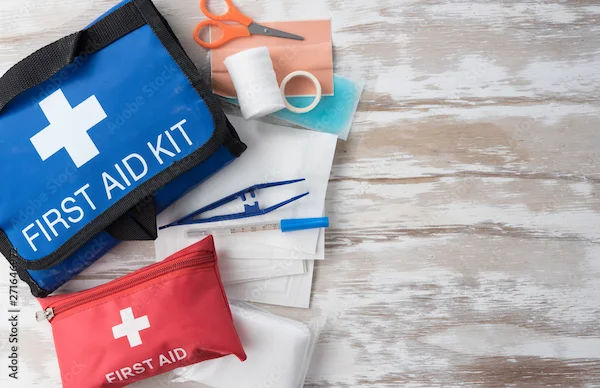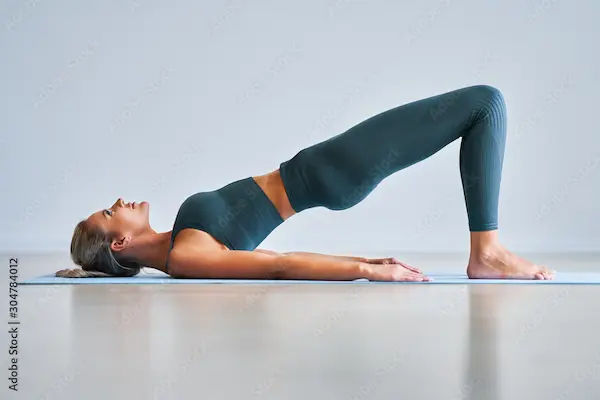Guide to Simple Ways Keep Happy Healthy Mind
Discover evidence-based strategies for a simple, happy, healthy mind. Learn how sleep, exercise, nutrition, mindfulness, connection, and digital hygiene improve mood and wellbeing.


Foundations: Why a Simple, Happy, Healthy Mind Starts Small
A simple, happy, healthy mind doesn’t require a total life overhaul. It thrives on small, repeatable actions that compound. Behavioural science shows that environment beats motivation: if you make the healthy choice obvious and easy, you’re far more likely to stick with it. Think of setting out walking shoes by the door, or placing a water bottle on
your desk as a “nudge.”
The Minimum Effective Dose (MED) can kickstart progress. For mood, even modest activity reduces depression risk; even 5 minutes of slow breathing calms the stress response. Your MED might be:
- Sleep: Protect a consistent bedtime/wake time within 60 minutes.
- Movement: 10 minutes of brisk walking or one flight of stairs every hour.
- Mindfulness: One 60-second breath break before meals.
- Nutrition: One brain‑healthy swap per day (e.g., nuts instead of chips).
- Connection: One meaningful message or call daily
Before starting, run a “friction audit”:
- Identify barriers: time, energy, tools, space.
- Reduce each by one notch: prepare gym clothes, pre‑log meals, schedule a 10‑minute walk after lunch, silence notifications.
- Pair a new habit with an existing routine (habit “recipes”): After I pour morning coffee, I’ll write 1 gratitude line; after lunch, I’ll walk 10 minutes.
By focusing on MED and friction, you get early wins and build momentum—a practical path to staying simple, happy, healthy.
Consult Top Specialists
Sleep: Your Brain’s Nightly Reset
Sleep is the most “simple, happy, healthy” lever for mood. Adults generally need at least 7 hours per night; consistent sleep is linked to better emotional regulation, lower stress, and reduced risk of depression. Anchor two points: wake time and morning light exposure. Get 5–15 minutes of daylight within an hour of waking to reinforce your body clock. Keep evenings dim and cool (around 18–20°C) to support melatonin.
Common drains:
- Caffeine: Limit after noon; caffeine’s half-life can disrupt deep sleep.
- Alcohol: It may help you fall asleep but fragments REM, impairing mood recovery.
- Screens: Blue‑enriched light delays melatonin; set devices to night mode and set a screen curfew 60 minutes before bed.
A simple routine for daily mental wellness:
- Wind‑down: 20–30 minutes of low-light, low-stimulation activity (paper book, stretch).
- 4‑7‑8 breathing or paced breathing (4 seconds in, 6 seconds out) for 2–5 minutes to shift your nervous system toward calm.
- Gratitude jot: 3 lines about the day—this can reduce rumination and improve sleep quality.
Sleep and mood are bidirectionally linked: inadequate sleep increases risk for anxiety and depression; improving sleep often improves mood. Mindfulness-based programs can modestly improve sleep quality and reduce stress.
Move Your Body: Exercise as Mood Medicine
Movement is one of the most reliable, simple, happy, healthy tools. Regular physical activity protects against incident depression across ages and regions. You don’t need long gym sessions; “snacks” of movement count.
Minimum Effective Dose:
- 10–15 minutes of brisk walking can enhance positive affect.
- 3 x 5‑minute stair climbs across the workday improves energy.
- 2 days per week of strength training is linked to lower depressive symptoms.
Options for every mood:
- Low-energy days: gentle stretching, a 10‑minute “awe walk” outdoors.
- Stressed days: intervals like 30 seconds brisk, 90 seconds easy, repeated 6–8 times.
- Social lift: buddy walks or a walking phone call; social movement doubles benefits.
NEAT matters: stand, pace while on calls, take the far restroom, deliver messages in person. These micro-bursts reduce sedentary time and stabilise energy.
WHO recommends 150–300 minutes of moderate or 75–150 minutes vigorous activity weekly for substantial health benefits, with added benefits for mental health and sleep. Exercise rivals antidepressants for mild to moderate depression in some trials and is an effective adjunct for anxiety.
Eat for Your Brain: Simple Nutrition Upgrades
Food affects mood via blood sugar stability, neurotransmitters, inflammation, and the gut‑brain axis. A Mediterranean-style pattern—rich in vegetables, fruits, legumes, nuts, whole grains, olive oil, and fish—is associated with lower depression risk.
Simple, happy, healthy swaps:
- Breakfasts that steady energy and mood: protein + fibre + healthy fats. Examples: Greek yoghurt, berries, and nuts; eggs with spinach and whole-grain toast; overnight oats with chia and peanut butter.
- Colour rule: Add two colours (vegetable or fruit) to each meal.
- Snack upgrade: nuts, hummus with carrots, fruit with cheese versus ultra‑processed snacks.
- Hydration: keep water visible.
Consider nutrients tied to mood:
- Omega‑3s (EPA/DHA) from fish (2–3 servings/week).
- B12 and folate (greens, legumes; consider testing if plant-based).
- Vitamin D (sunlight, fortified foods; low levels are common and linked to low mood).
If you suspect a deficiency, Apollo 24|7 offers convenient home collection for tests like vitamin D, B12, iron, thyroid profile, or HbA1c.
Consult Top Specialists
Calm and Clarity: Mindfulness, Breathing and Stress Tools
Chronic stress narrows attention, reduces cognitive flexibility, and depletes mood. Mind-body skills help you return to baseline.
Start here:
- 60‑second reset: Inhale through the nose for 4, exhale through the mouth for 6–8, for 6–10 cycles.
- Box breathing (4‑4‑4‑4) for pre-meeting calm.
- 3‑minute grounding: identify 5 things you see, 4 feel, 3 hear, 2 smell, 1 taste.
Beginner mindfulness exercises:
- One-minute “sound scan” at your desk.
- 5 mindful sips of tea or water, noticing sensations.
- Self-compassion break: acknowledge stress and offer kindness.
Gratitude and savouring:
- Write 1–3 lines nightly about what went right and why.
- Savour small wins: share them, take a photo, pause for 10 seconds.
Mindfulness programs improve psychological stress outcomes. Gratitude journaling is linked to increased well-being and optimism.
Connect and Contribute: Relationships, Gratitude and Purpose
Humans are wired for connection. Strong social relationships are associated with a 50% increased likelihood of survival.
Weekly “social minimums”:
- Two meaningful conversations (10–20 minutes).
- One shared activity (walk, meal, hobby).
- Micro-connections daily: smile, thank, small talk with barista or neighbour.
Gratitude and giving:
- Gratitude notes (one per week).
- Volunteering: start with one hour/month.
Purpose:
- Write a 1‑sentence purpose draft: “I help X by doing Y so they can Z.” Revisit monthly.
Social relationships, volunteering, and purpose improve well-being and longevity.
Digital hygiene and environment: Design for attention
Three app rules:
- Move social apps off the home screen.
- Turn off non-essential notifications; batch them.
- Use app timers.
Phone “parking”:
- Charging station outside the bedroom.
- Park your phone across the room during deep work.
Focus zones:
- Tidy, well-lit workspace.
- Use 20‑8‑2 rule each hour: 20 min sitting, 8 standing, 2 moving.
Nature and light:
- 120 minutes/week in nature improves well-being.
- Morning daylight supports circadian rhythm; evening dim light helps wind down.
Limiting social media reduces loneliness and depression. Time in nature is linked to higher well-being.
When to Seek Help: Screening, Red Flags and Care Options
Seek help if low mood, anxiety, sleep problems, or loss of interest persist beyond two weeks, or daily life is impaired.
Screen yourself:
- PHQ‑2/PHQ‑9 or GAD‑7 can guide next steps.
Medical checks:
- Thyroid dysfunction, anaemia, B12/D deficiency, diabetes, sleep apnoea, medications. Apollo 24|7 offers home collection for relevant tests.
Therapy and medication:
- CBT, behavioural activation, mindfulness-based therapies.
- Antidepressants for moderate-to-severe symptoms.
Crisis:
- Immediate danger or self-harm: seek emergency care or contact local crisis hotline.
Build your plan: A 7-day micro-habit kickstart
Here's a simple 7-day plan to start small:
Day 1 (Sleep + Light): consistent wake time, 10 min morning daylight, 60‑second breathing at bedtime.
Day 2 (Move): 10–15 min brisk walk after lunch, one flight of stairs twice.
Day 3 (Food): brain-healthy breakfast, two colours in lunch.
Day 4 (Calm): 3 x 60-second breathing breaks, 3-min grounding.
Day 5 (Connect): gratitude text, schedule 20-min chat.
Day 6 (Digital): move apps off home screen, 20-min app limit, park phone at dinner.
Day 7 (Nature + Reflect): 20–30 min in green space, reflect on easiest/hardest habits.
Tracking: sleep, move, calm, food, connect, digital, mood.
Consult Top Specialists
Conclusion
A simple, happy, healthy mind is built on repeatable basics: steady sleep, daily movement, brain-smart meals, mindful minutes, and meaningful connection. Start with your Minimum Effective Dose, remove friction, and track brief daily progress.
Check for medical contributors if symptoms persist. Apollo 24|7 offers convenient home collection for tests like vitamin D, thyroid profile, B12, and HbA1c. Consult a doctor online or in person if low mood or energy persists. Focus on what’s workable now; small, consistent steps build lasting mental wellness.
Consult Top Specialists

Ms. Sridevi
Counselling Psychologist
5 Years • BSC,MSC Clinical Psychology
Bengaluru
Apollo Medical Center, Marathahalli, Bengaluru

Miss. Vaishnavi Sankeshwar
Psychologist
5 Years • Msc Clinical Psychology
Bengaluru
Apollo Clinic, JP nagar, Bengaluru

Ms Rajashree Navthale
Psychotherapy & Counselling (ASM)
8 Years • MA in Counselling & Psychotherapy, PG Diploma in Counselling & Psychotherapy.
Akola
Connect Counselor, Akola

Ms. Gunjan Arya
Psychologist
4 Years • MA Psychology
Delhi
Psych Therapy By Gunjan Arya, Delhi

Ms. Sapna Zarwal
Psychologist
20 Years • Msc (Applied Psychology), Ph D ( Special Education)
Gurugram
SOOTHING ZEN, Gurugram
(25+ Patients)
Consult Top Specialists

Ms. Sridevi
Counselling Psychologist
5 Years • BSC,MSC Clinical Psychology
Bengaluru
Apollo Medical Center, Marathahalli, Bengaluru

Miss. Vaishnavi Sankeshwar
Psychologist
5 Years • Msc Clinical Psychology
Bengaluru
Apollo Clinic, JP nagar, Bengaluru

Ms Rajashree Navthale
Psychotherapy & Counselling (ASM)
8 Years • MA in Counselling & Psychotherapy, PG Diploma in Counselling & Psychotherapy.
Akola
Connect Counselor, Akola

Ms. Gunjan Arya
Psychologist
4 Years • MA Psychology
Delhi
Psych Therapy By Gunjan Arya, Delhi

Ms. Sapna Zarwal
Psychologist
20 Years • Msc (Applied Psychology), Ph D ( Special Education)
Gurugram
SOOTHING ZEN, Gurugram
(25+ Patients)
Consult Top Specialists

Ms. Sridevi
Counselling Psychologist
5 Years • BSC,MSC Clinical Psychology
Bengaluru
Apollo Medical Center, Marathahalli, Bengaluru

Miss. Vaishnavi Sankeshwar
Psychologist
5 Years • Msc Clinical Psychology
Bengaluru
Apollo Clinic, JP nagar, Bengaluru

Ms Rajashree Navthale
Psychotherapy & Counselling (ASM)
8 Years • MA in Counselling & Psychotherapy, PG Diploma in Counselling & Psychotherapy.
Akola
Connect Counselor, Akola

Ms. Gunjan Arya
Psychologist
4 Years • MA Psychology
Delhi
Psych Therapy By Gunjan Arya, Delhi

Ms. Sapna Zarwal
Psychologist
20 Years • Msc (Applied Psychology), Ph D ( Special Education)
Gurugram
SOOTHING ZEN, Gurugram
(25+ Patients)
More articles from General Medical Consultation
Frequently Asked Questions
Q1: What is the fastest daily habit to feel calmer?
Try 60 seconds of slow breathing with longer exhales (4 seconds in, 6–8 out). It’s a proven, beginner mindfulness exercise and a simple mental health tip you can do anywhere.
Q2: I’m too busy to exercise. What’s the Minimum Effective Dose?
Start with 10–15 minutes of brisk walking daily or three 5‑minute stair climbs. These daily habits for mental wellness improve mood without a gym.
Q3: What should I eat for a better mood in the morning?
Choose a protein‑ and fibre-rich breakfast (e.g., Greek yoghurt with nuts and berries). These foods for brain health stabilise energy and support a happy, healthy day.
Q4: How can I do a digital detox without quitting my phone?
Move social apps off your home screen, set a 20‑minute limit, and park your phone outside the bedroom. These digital detox benefits protect sleep and focus.
Q5: When should I see a therapist online?
If low mood, anxiety, or sleep problems persist beyond two weeks, or impair daily life, seek help. When to see a therapist online: if you prefer privacy, flexibility, or live far from services. Start with Apollo 24|7 to discuss options.




